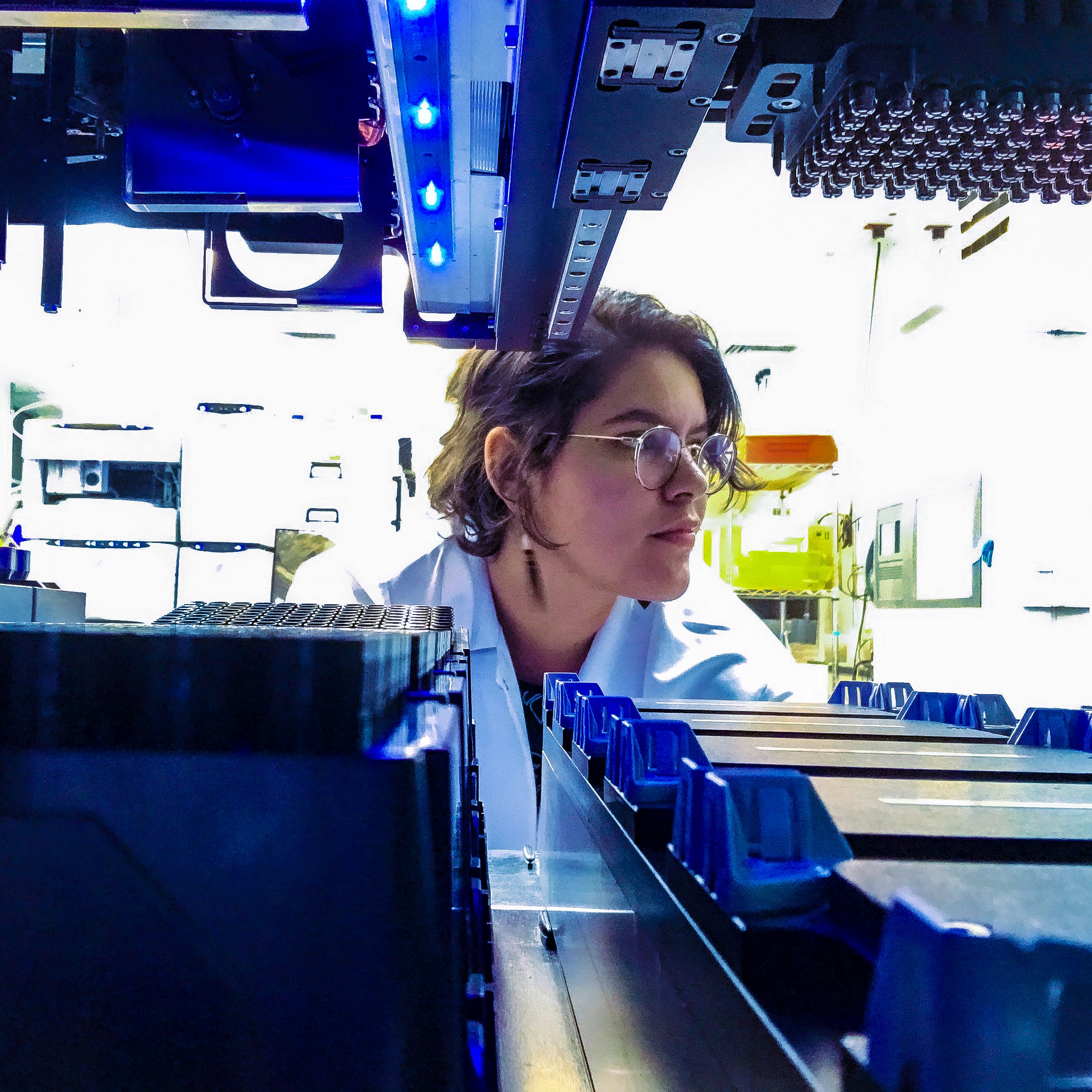Homeworld Garden Grants: Protein Engineering for Climate
Homeworld Collective is funding ambitious, early-stage projects at the translational intersection of protein engineering and climate biotech. Grant amounts will range up to $200k.
Submitted Projects
59
Total Funding
$1,000,000
Submission Deadline
Oct 20, 2023
About This Grant
Protein engineering is a high-growth area of biotechnology that has significant potential towards climate goals. Homeworld Collective identified that risk-tolerant funding and interaction between teams have been limiting factors to the deployment of this new approach to sustainability challenges.
The Garden Grants program facilitates learning and collaboration by publicly discussing important problems for climate while protecting applicants’ novel approaches.
Below are 60+ public problem statements that describe context, significance, and goals for climate impact using biotechnology. Technical review of private solution statements will be ongoing.
Funded Projects
16
Generative Design of Programmable Metal-Binding Proteins for Bioremediation
The mining of heavy metals accounts for about 10% of global greenhouse gas emissions. Moreover, exposure...
Designing new enzymes for sustainable fertilizer
Agriculture relies on phosphorous (P) fertilizer, which generates algae blooms and significant GHG emissions...
Scaling the Bioeconomy: Debottlenecking Biomanufacturing with Enhanced P450s
Delivering best-in-class enzymes for biomanufacturing.
Improve the CO2 Uptake and H2O Retention under High Light and Temperature Conditions.
Plants need efficient CO2 uptake to enhance photosynthesis (PS). However, high temperatures prompt stomatal...
Filtration Systems from Renewable Silk Materials
The goal of this project is to design filtration technologies using sustainability, energy costs and environmental...
Improving the CO2 Capture Efficiency of Plants Through Enzyme Engineering
Plants capture CO2 from air to build sugars, which allows them to grow through a process called photosynthesis...
De novo protein design for photochemical water oxidation and renewable solar fuels
Photosynthesis sustains the biosphere, but it operates with low overall efficiency. By designing brand new...
CALORIE-DAC. Carbonic Anhydrase For LOw RegeneratIon Energy Direct Air Capture
We investigate technoeconomics and aspirational CA targets for CA-enhanced KOH/K2CO2 DAC processes with...
Catalyzing biofuel production – a proof of concept and screening platform for designing proteins for organic solvents
Using enzymes in environments other than water has enormous bioengineering potential, but a major roadblock...
Engineering Carbonic Anhydrase for Efficient Immobilization and Mass Transfer for CO2 Removal
Technologies that remove carbon dioxide from emissions and air are urgently needed to mitigate the effects...
Generative AI-Based Design of Novel Silicase Enzymes for Carbon-Sequestering Agriculture
Enhanced weathering is a scalable strategy for sequestering atmospheric CO2 and increasing crop productivity...
Efficient biological upcycling of polyethylene terephthalate (PET) into high-value compounds
Polyethylene terephthalate (PET) can be efficiently hydrolyzed by enzymes only at high temperatures (~70...
Engineered nutritional yeasts as versatile and delicious cell-based meals
Towards reducing manufacturing costs for meat alternatives while increasing their palatability, we aim to...
Designing ultrastable carbonic anhydrase with deep generative models and high-throughput assays
To minimize the impact of CO2 emissions on life on earth, we need technologies for carbon capture exceeding...
Immobilisation of carbonic anhydrase for more efficient direct air capture
Direct air capture (DAC) is a promising pathway for atmospheric CO2 removal. Biocatalysts like carbonic...
Generalizable Computational Pipeline for Engineering Ultrastable Variants of Carbonic Anhydrase
AI-driven protein design is undergoing a transformation, driven by recent breakthroughs such as AlphaFold...
Submitted Projects
43
Engineering Lichens for Durable Carbon Capture
Engineering synthetic lichens to capture CO2
n/a
n/a
Optimization of plastic-degrading enzymes for marine bioremediation
Developing plastic-degrading enzymes that function at marine conditions would allow us to use them directly...
Engineered protein biosensors to detect forever chemicals in food, crops, soil and water
‘Forever chemicals’ (i.e., PFAS) are omnipresent in our lives, where they accumulate in water, soil, crops...
Design of 'Plugged-In' Proteins to Alleviate Biological Energy Constraints in Carbon Fixation
This project aims to create a bioelectrochemical interface using enzymes and bacterial protein nanowires...
De novo design of an enzyme to equilibrate CO2 into the oceans and reverse global warming
The oceans are a sink for CO2. Rocks such as olivine could be dissolved into ocean water, which would increase...
Cultivated Seafood: Single-Cell Multiomic Analysis of Killifish for Antibodies Development
The development of cultivated seafood requires identifying and isolating specific cell types. Cell sorting...
Developing a 'High-Throughput Growth Factor Engineering' Pipeline for Improved Biosynthetic Medias in Cultivated Meat
Cultivated meat seeks to revolutionize food infrastructure by developing sustainable production of meat...
Deep Learning for Protein Secretion Optimization in Microalgae
This project aims to use deep learning to engineer synthetic proteins for enhanced secretion, increasing...
Evolving a Carbon Capture Enzyme to its Thermostability Limits
Engineering an ultrastable carbonic anhydrase (CA) is an important challenge in efforts to make large-scale...
Tropical Disease Detection Platform
Neglected tropical diseases (NTDs) are an increasing threat to the world population due to climate change...
Next generation engineering of PET hydrolyzing enzymes - towards a circular PET economy
The increasing production of Polyethylene terephthalate (PET) combined with inadequate waste management...
Enzyme Engineering for Selective Polymer Recycling: Advancing the Circular Economy for Plastics
Transitioning from fossil-based plastics to biobased alternatives is paramount for advancing environmental...
Immobilized CmpA: decreasing the cost and increasing the efficiency of ion exchange for direct air capture
While electrochemical direct air capture (eDAC) systems are some of the most theoretically efficient of...
Programmable Protein Engineering for Plastic Degradation
We propose a generative model to accomplish Programmable Enzymatic Degradation of plastics. The ultimate...
Creating Denovo Carbon Concentrating Mechanisms from Fast Form II Rubisco
By crafting denovo complexes from rubisco, we intend to enhance carbon fixation efficiency and explore the...
Engineering an ultrastable carbonic anhydrase for use in CO2 sequestration
Reducing CO2 levels is a significant technological focus in the fight against climate change today. Direct...
Ancestral Sequence Reconstruction for the Resurrection of Enhanced Cadmium Carbonic Anhydrase
The pressing need to combat climate change has sparked interest in decarbonization and carbon capture. This...
De Novo Design of Plastic Deconstructing Enzymes
Chemical deconstruction of plastics is a key strategy for fighting waste accumulation and increasing recycling...
De Novo Designed Proteins for Copper Extraction
Introducing enzyme catalysts to mining as a method of increased retention of metal extraction enables cascading...
Carbon Killer
A project to increase CO2 fixation in photosynthetic organism
Naturally Competent Cells Devour DNA to Engineer Proteins for Climate Action
The fast-growing microbe Vibrio natriegens has an extraordinary ability to consume and integrate DNA from...
Sustainable biomanufacturing of engineered protein nanobubbles for buoyant isolation of protein targets
Biomanufacturing of recombinant proteins in cell culture yields high value for biomedical applications but...
Biocatalytic Materials Bearing Engineered Live Cells for CO2 Capture
We will harness biotechnology and polymer engineering for the development of live-cell biocatalytic materials...
Engineering ancestral enzymes to tackle textile waste
This project proposes a novel approach to engineer ancestral enzymes in order to tackle the global problem...
Using deep learning methods to redesign thermostable rubisco activase
Due to climate change, plants are subject to unprecedented levels of heat stress. Heat stress causes crucial...
Engineered cell penetrating peptides for agricultural biotechnology
In light of population growth and a changing global climate, plants are at the core of our sustainability...
Improving carbon fixation through machine learning-assisted engineering of Rubisco
Addressing climate change requires new approaches for fixation of CO2. Inspired by nature, Rubisco, the...
CO2 electrolyzer: A new direction in carbon negative technology
A carbon-negative strategy is the need of the hour to reduce atmospheric CO2 without compromising the manufacturing...
Developing ultrastable carbonic anhydrase
The high cost and energy requisites of carbon capture and storage (CCS) limit its broad use. Carbonic anhydrases...
Using Plants to Decarbonize the Mining Industry
Phytomining uses hyperaccumulator plants to absorb minerals from low-grade ore, providing access to untapped...
Navigating the Rubisco sequence-function landscape for improved CO2 assimilation
The enzyme rubisco catalyzes the first step of carbon assimilation in photosynthesis and limits plant growth...
Scalable and High-Efficiency Cell-Free SAF Bioproduction
Sustainable Aviation Fuel offers a viable path to decarbonize long-haul flights. Fischer-Tropsch and Ethanol...
Engineering plastic binding proteins to capture microplastics
Microplastics (MPs) are widely dispersed in nature and negatively impact the biosphere. Unlike larger plastic...
Enzyme Platform Development for Sustainable Production of Bioactive Aminoketone Derivatives
Unlike traditional chemical industry, enzymatic syntheses align with green chemistry principles, affording...
Engineering Internal Ribosome Entry Sites to be General Translational Units
We are going to make tools that can express proteins in any organism, quickly and cheaply. We can do this...
Enhanced carbon fixation in plants by engineering a novel carbon concentrating mechanism
To mitigate climate change, this proposal aims to enhance CO2 removal efficiency of C3 plants by engineering...
Recoding cyanobacteria for carbon sequestration
I'm inventing scalable, simplified and economic carbon removal solutions based on the latest advances in...
Growing Batteries: Discovering Novel Redox-Active Protein Pairs for Organic Redox Flow Batteries
Fire powers civilization by oxidizing carbon fuels. Cells oxidize energy in the Krebs cycle using natural...
Adapting a 35 million year old solution for carbon capture using AI-guided protein design
Enzymes used in carbon fixation could revolutionize carbon capture but require significant re-engineering...



























































 Experiment Grant Programs
Experiment Grant Programs